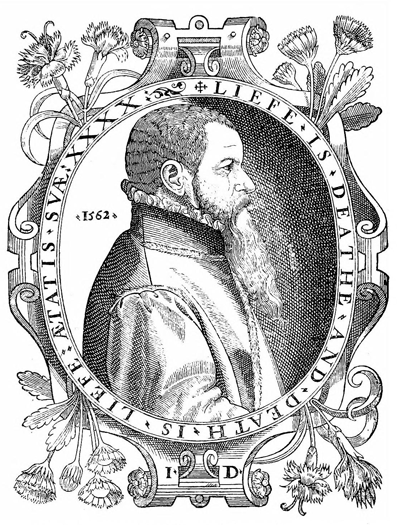
1580
John Day is elected Master of Stationers' Company. He dies four years later.

John Day is elected Master of Stationers' Company. He dies four years later.
William Norton is elected Master of Stationers' Company. He is the first recognised bookseller to hold the office and is re-elected in 1586 and in 1593 alongside George Bishop.
John Stubbs and William Page both lose their right hand as a punishment for printing and dispersing a pamphlet called 'Gaping Gulf' which opposes the marriage between Elizabeth and Francis, Duke of Anjou. Copies of the pamphlet are publicly burned at Stationers' Hall and a royal proclamation denounces Stubbs and demands all copies of the tract to be destroyed.
John Harrison is elected Master of Stationer's Company. He is re-elected in 1588 and 1596.
A decree prohibiting the publication of any book contrary to statute, injunction, ordinance and letters patents, as well as any ordinance set down by the Company of Stationers. The formal protection of the Star Chamber was extended not only to books protected under royal printing privileges but to books printed in contravention of the internal regulations of the Stationers' Company itself, further enhancing the significance of "stationers' copyright".'
John Judson is elected Master of Stationers' Company.
In December of this year, Stationers' Court of Assistants passes a new set of orders to control the quantity of printing. Books can no longer be reprinted from standing type and impressions shall not be larger than 1,500.
The playhouse is built on Bankside and is the fifth purpose-built theatre in London. It is disused by 1603.
In April, following instructions from Archbishop Whitgift, officials of the Stationers' Company raid the London premises of the veteran Puritan printer Robert Waldegrave and confiscate his printing press as a response to the printing of the anti-episcopal tract The State of the Church of England.
Richard Watkins is elected Master of Stationers' Company. He is re-elected in 1594.
George Bishop is elected Master of Stationers' Company. He is re-elected in 1592, 1593 (alongside William Norton), 1600, 1602 and 1608.
Francis Coldock is elected Master of Stationers' Company. He is re-elected in 1595.
The Company agrees to allow the Cambridge printers a month's options on books from the Frankfurt Fair, as long as the books were entered in the register.
An Act of Parliament is put to be consulted by Parliament against foreign merchants who were deemed to be competing unfairly with English merchants. The attempt to get it passed is not successful.
Theatres across London are closed due to the spread of the bubonic plague.
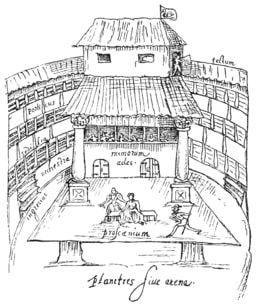
The Swan Theatre is opened in Southwark.
The Lord Mayor and aldermen petition the Privy Council to close the theatres in London. According to the petition, one of the many reasons to close the theatres is because they 'maintain idleness in such person as have no vocation, and draw apprentices and other servants from their ordinary works.'
Gabriel Cawood is elected Master of Stationers' Company. He is re-elected in 1599.
Ralph Newbery is elected Master of Stationers' Company.
The Globe Theatre is opened on Bankside.
Isaac Binge is elected Master of Stationers' Company.
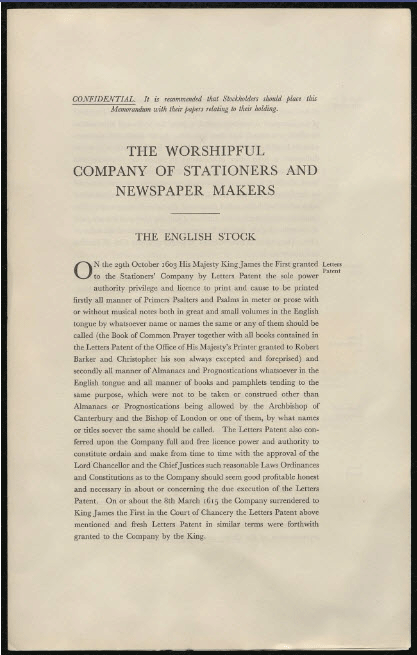
The Stationers' Company forms the English Stock, a publishing company with shares held by members of the Company.
The basis of the founding of the English Stock, this grants "to the whole Companie of Stationers for the benefit of the poore of the same that they and none others shall ymprint the Bookes of private prayers, prymers, psalters, and psalms in English or Latin, & Almanrackers and Prognosticacons within this Realme".
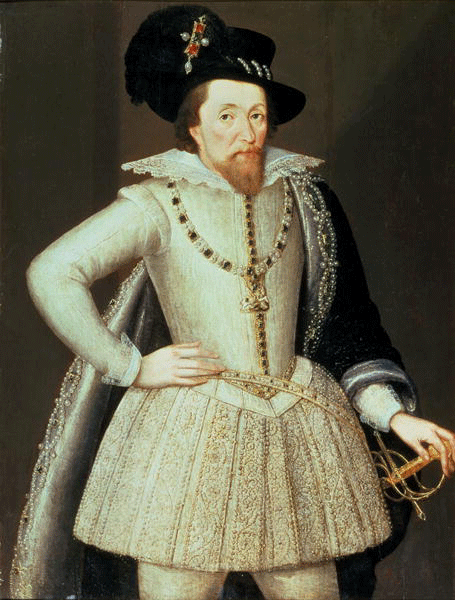
James I becomes King on 29 July.
James VI, King of Scots, accedes to the English throne as James I and so unites the two crowns.
Thomas Man is elected Master of Stationers' Company. He is re-elected to the same position in 1610, 1614 and 1616.
Robert Barker is elected Master of Stationers' Company. He is re-elected the following year.
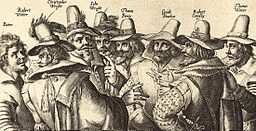
The Gunpowder Plot is discovered and stopped on 5 November when Guy Fawkes is found hiding under the Houses of Parliament with 36 barrels of gunpowder.
The Company buys Abergavenny House for £3,500 and moves out of Peter's College to this new site.
John Norton is elected Master of Stationers' Company. He is re-elected in 1611 and 1612.
Two Stock-keepers are added to the ranks of the Master and Wardens to reflect those holding Assistant's shares, as well as two members reflecting the opinions of those with Livery shares.
Two Stock-keepers representing those with Yeomanry shares are also allowed to join the Company's committee.
It is decided that an elected Stock-keeper cannot be an Under Warden without relinquishing his Stock-keeper position to someone else.
Thomas Dawson is elected Master of Stationers' Company. He is re-elected in 1615.
An agreement is signed by the Company with Sir Thomas Bodley to deposit a copy of every new book in the University Library, situated in Oxford.
Upon the death of George Bishop and per request of his will, Stationers' Company acquires Newton Farm at Milbournstroke in Shropshire.
Plumbers' Company is incorporated under a Royal Charter.
Order by the Assistants of the Company that a bookbinder may take on a second apprentice if he reports when his current one has served for four years.
Bonham Norton is elected Master of Stationers' Company. He is re-elected in 1626 and 1629.
The Hope Theatre finishes construction and opens in Southwark.
During a performance of Shakespeare's Henry VIIIon the 29 June, the Globe burns down. Sir Henry Wotton says that the fire 'ran round like a train, consuming within less than an hour the whole house to the very grounds.'
Thomas Mountfort is appointed Clerk to Stationers' Company.
A year after it burnt down, the Globe Theatre is rebuilt with a tiled, instead of thatched, roof.
The Latin Stock is established, which purchases and distributes books printed abroad.
Simon Waterson is elected Master of Stationers' Company. He is re-elected in 1621.
Scriveners' Company is incorporated under a Royal Charter.
Expanding on the 1608 resolution, it is decided that neither Warden can also be a Stock-keeper.
William Leake is elected Master of Stationers' Company.
Irish Stock set up, aimed at the Irish market. It most likely lasted around thirty years.
Stationers' Company acquires property in Wood Street for £1,200.
On 9 May 1619 the Stationers' Company make and order limiting the number of presses in the City of London to nineteen.
Richard Field is elected Master of Stationers' Company. He is re-elected in 1622.
Humphrey Lownes is elected Master of Stationers' Company. He is re-elected in 1624.
St Paul's Cathedral undergoes restoration. King James I supports restoration work on the cathedral, which takes place over 40 years, often hindered by the Civil War and damage by Parliamentarian forces.
George Swinhowe is elected Master of Stationers' Company. He is re-elected in 1625 and 1630.
A Privy Council decree allows the University of Cambridge printers to print certain books alongside printers in London, up to the capacity of one printer.
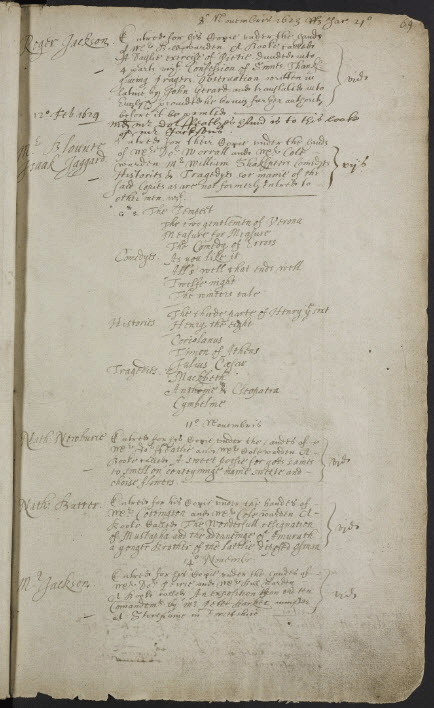
Shakespeare's First Folio is first published and is entered into the Stationer's Register, providing the running order in which the plays will appear in the theatre.
Charles I succeeds as King of England, and marries Princess Henriette Maria, a French Roman Catholic.
Charles I is crowned on 27 February.
George Cole is elected Master of Stationers' Company. He is re-elected in 1628, 1631 and 1632.
The Latin Stock is brought to a close.
King Charles I abolishes Parliament, beginning a period in which he rules without said structure of government, lasting until 1640.
The Worshipful Company of Spectacle Makers is founded. This livery company is established after a royal charter by King Charles I.
On April 16 a Privy Council decree is passed which allows the University of Cambridge printers to produce Bibles of a certain size, as well as some versions of the psalms and up to 3000 copies each year of Lily's 'Grammar'.
Henry Walley is appointed Clerk to Stationers' Company.
The English Stock signs an agreement with the University of Cambridge printers. This allowed for the continued printing of certain books at Cambridge but decreed that it was to be governed by the English Stock, with their own paper sent from London, and completed sheets which were not needed for the Cambridge market were to be sent to Stationers' Hall.
Adam Islip is elected Master of Stationers' Company. He is re-elected the following year.
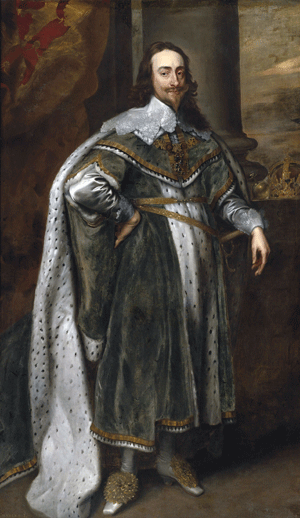
King Charles I becomes King of Scotland at a coronation at Holyrood Abbey in Edinburgh.
Felix Kingston is elected Master of Stationers' Company. He is re-elected in 1636.
Edmund Weaver is elected Master of Stationers' Company.
This decree states that nothing could be printed without it being licensed and registered with the Company, which managed the Stationers' Register.
Oxford University devises an arrangement whereby the Company and the King's Printers will pay them £200 per annum and in return they would refrain from printing the Bible and almanacks.
John Harrison is elected Master of Stationer's Company.
John Smethwick is elected Master of Stationers' Company.
Under a new arrangement, the English Stock would pay the University of Cambridge printers £200 a year in order to send their own books to the Cambridge market and prevent those printers from producing their own. Exceptions to this would be books for which the Cambridge printers had written instructions from London, which the Stock would still oversee.
William Aspley and John Smethwick are both elected as Master of Stationers' Company.
Habeas Corpus Act 1640. This act abolishes the Star Chamber, thus ending de facto censorship and leading to an increase in published materials.
King Charles summons what came to be known as the Short Parliament on April 13.
King Charles dissolves parliament on 5 May. This arises after a disagreement with members of Parliament regarding subsidies for a war against Scotland.
King Charles summmons the Long Parliament on 3 November, in order to pass financial bills needed in the aftermath of the Bishops' Wars.